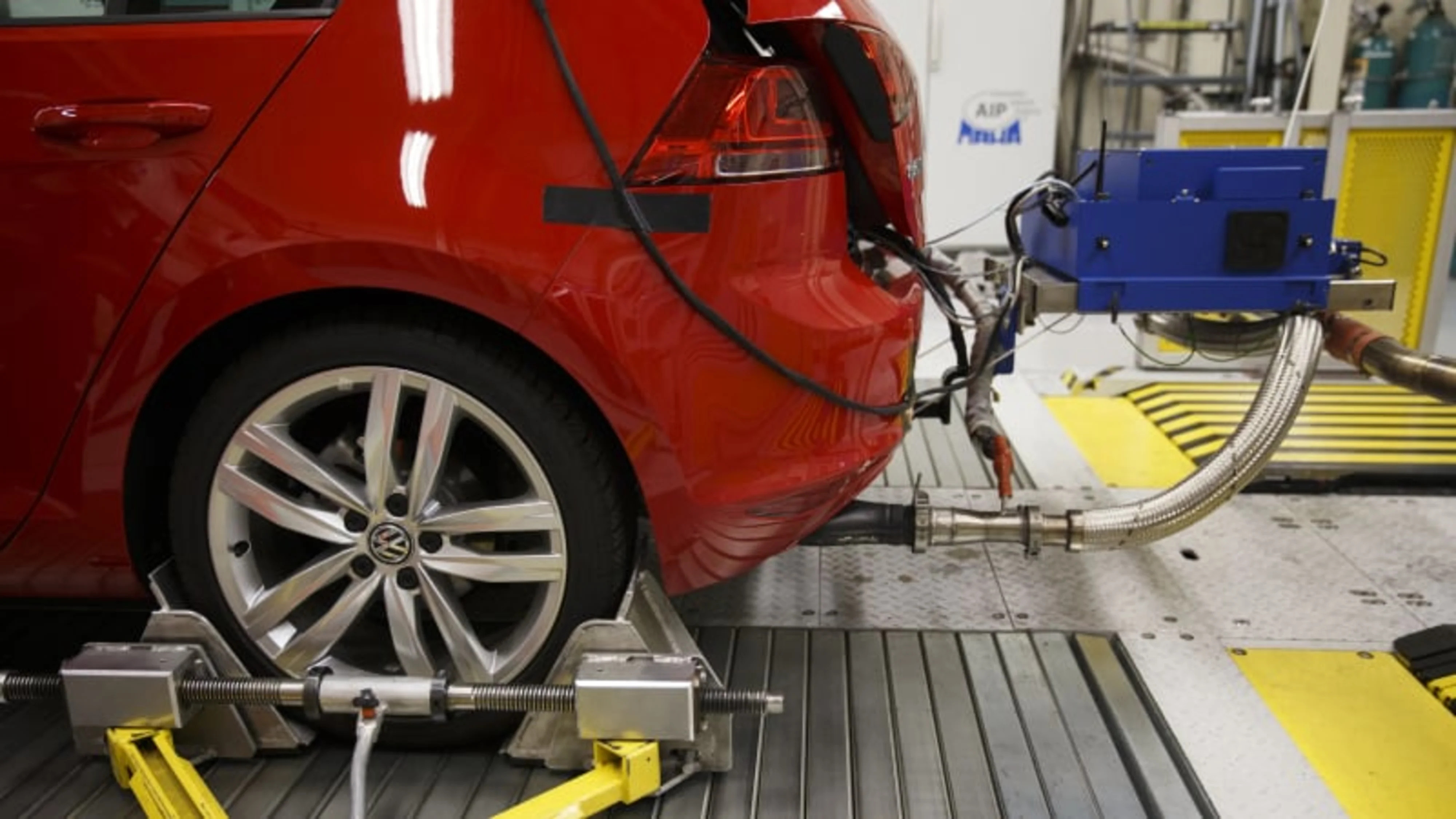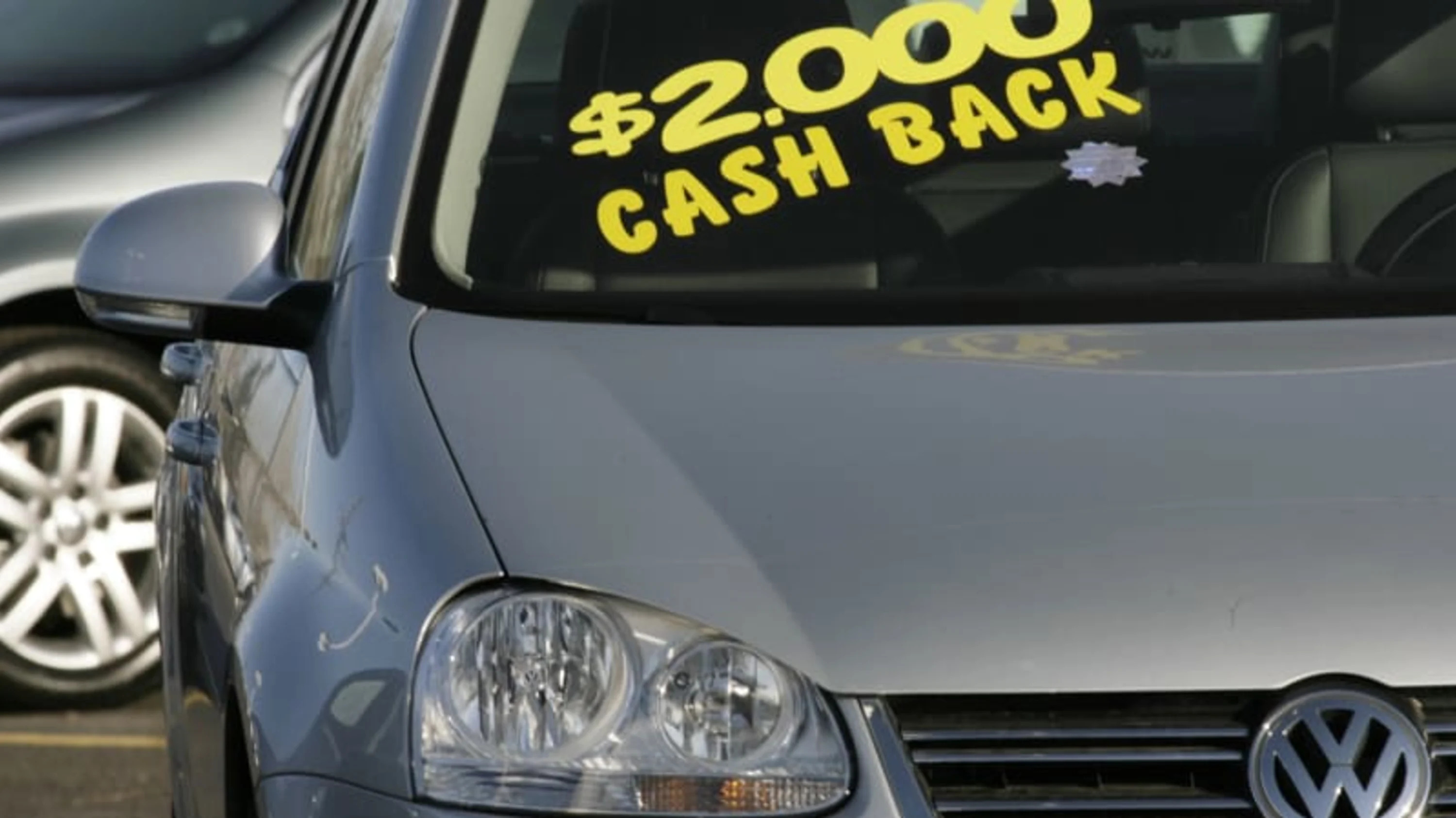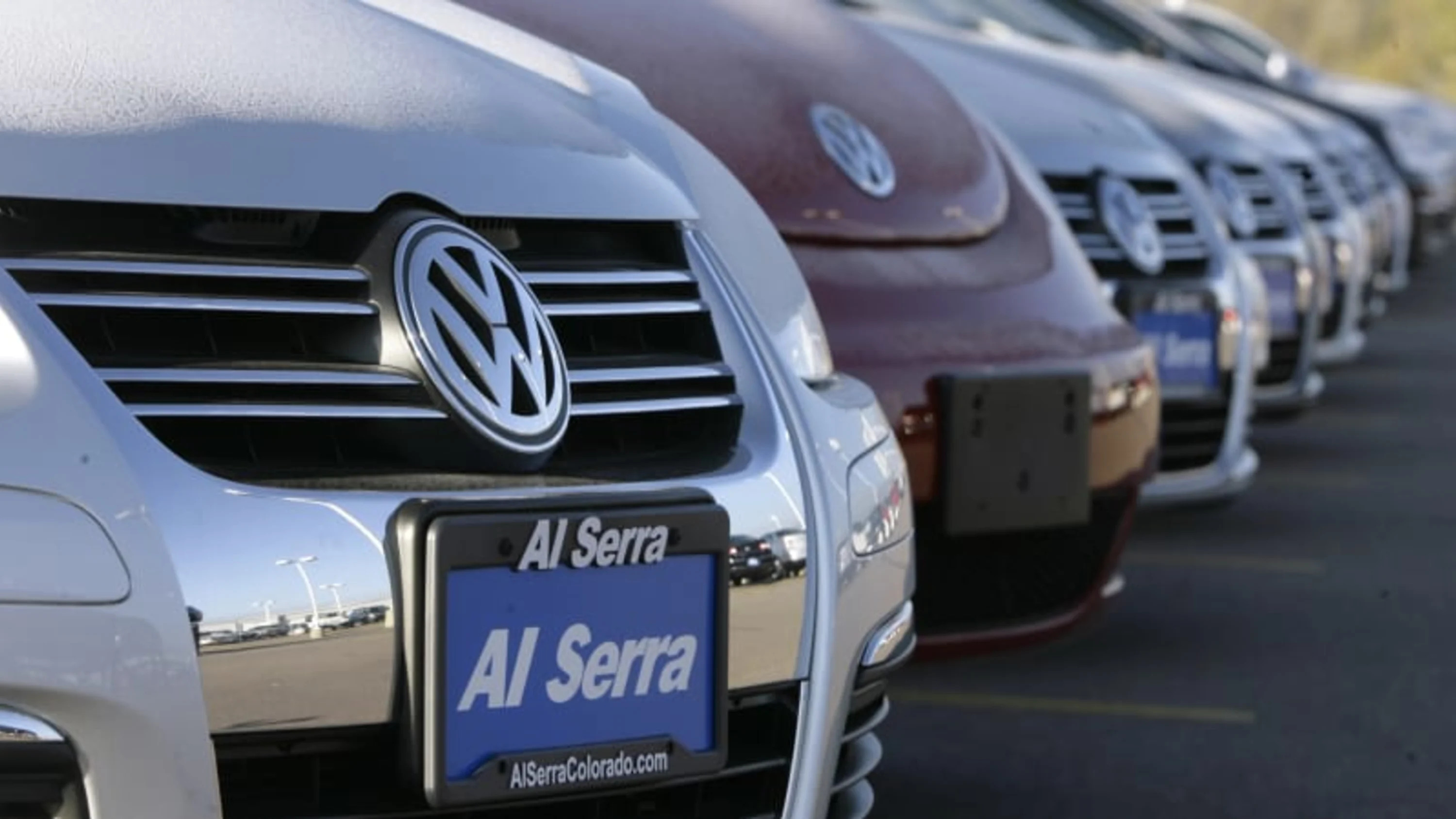Everyone who owns or has remotely considered a Volkswagen diesel over the past 45 days has tried to figure out the right formula. Is it worth buying after the recall? If I own one, should I sell it? How will it perform if I want to keep it? Questions create doubts, and doubts create a stunning lack of activity when it comes to the new and used car market.
I seriously doubt Volkswagen will be rolling out its 2016 TDI models anytime soon. The company already failed to create a fix nearly a year ago and has spent an unusually long amount of time trying to get the formula right. There's also the fact that it rescinded its EPA application for 2016 models.
I can't provide the ultimate oracle's guide on whether any recalled Volkswagen diesel will fall under the "good value" perceptions of car buyers. But I do believe four factors in particular will be largely independent of the outcome of that recall, and they're what you should pay particular attention to if you plan on buying any Volkswagen diesel – new or used.
1. Demand Creating Bad Supply
There are a large number of car buyers who believe that they can zig while the marketplace tells them to zag. Unfortunately, those are the ones that get sent to the slaughter once articles like the one linked above proclaim, "resale values are down 13 percent."
These heavily biased write-ups ignore the fact both the supply and demand of new and used recalled Volkswagen diesels are no longer operating in that free market. The supply side is obvious since the EPA has put a stop-sale on all Volkswagen diesels. However, on the demand side, those Volkswagen dealers who have exclusive access to off-lease vehicles and certified pre-owned programs for 2012 and newer VW diesels are now sitting on the sidelines with all those cars.
In the wholesale car business, the scabs are salvage vehicles that are wrecked or flood damaged, vehicles that can't be put under a CPO program due to frame damage and lemon law requirements, and the wholesale repossession market. All of these substandard vehicles make up the new supply, the collective underbelly of low-end quality in the used car marketplace.
In car terms, Volkswagen is now forced to not sell the better vehicles. Only independent dealerships and exporters can make up the slack, and neither of those groups have direct access to the supply that is offered exclusively to VW dealerships. Buyers who believe they are going against the grain are usually fooled into overpaying for that lower-quality car under the guise of the deal. When the media tells you that resale values are down, they don't have exposure to the nuances of the wholesale market, which is why you don't hear the other side of the story.
What really happens is that supply gets curtailed and media hoopla creates an unusually high demand for those who see themselves as value hunters. Those folks are not really hunters. They're easy prey who wind up paying the premium for what is almost always an inferior product.

2. The Software Problem Becomes A Hardware Problem
If this were simply a matter of getting the software tweaked to a given point and letting that be that, this recall would be an easy one. If this could have been fixed in software, it likely wouldn't have happened in the first place. What concerns me in particular is that when you have an emissions-focused recall, those contaminants have to go somewhere.
Honda, Mazda, and Toyota did not sell their diesel vehicles stateside because they could never find that elusive recipe that would make them legal in the United States. For Volkswagen, software modifications, plus a new urea system, plus a more sophisticated catalytic converter may not come close to equaling the outcome that most diesel owners envision for these vehicles. You also have to take into consideration that the addition of these systems may even impact the longevity of VW's diesel powertrain.
This to me is the biggest question mark of all, the long-term unknown. This is in part what's influencing the long-term values for Volkswagen diesels that fall under the current recall. Until these uncertainties are resolved, there is no intelligent bet to be made.

3. Incentives Say A Lot
Volkswagen is right now offering $2,000 for current owners and, oddly enough, those who have family members that own Volkswagens and live at the same residence. The reason these rebates are not being offered to folks who don't own Volkswagens is that the brand is already damaged in the eyes of the public. Let me offer a few recent examples. When Audi went through its unintended-acceleration scandal, the firestorm of media coverage buried the brand and nearly killed it. When Suzuki and Isuzu were accused by Consumer Reports of having rollover issues, their dealerships in North America suffered in the long run as well.
Volkswagen is right now trying to preach to the converted non-diesel owners in the hope that they can temporarily strengthen the brand's sales until a resolution for current diesel owners is set in place. I can't emphasize enough that there is a shrewd avoidance of providing any sort of trade-in guarantee to its current diesel owners who may be impacted by the recall, and that alone should give you pause.
The number of folks who fall under this loss leading umbrella is over 500,000 strong. Only when these current customers are taken care of will you see a program that will make buying a new Volkswagen truly advantageous for non-owners.

4. Used Rules Still Apply
As for used older Volkswagens, the contrarian crowd that is currently shopping that side of the ledger is stronger than you might expect. People think they are sophisticated when it comes to car shopping, but the truth is there are billions of dollars invested every year into encouraging folks to make impulsive decisions. Whether the gimmick is dancing rodents or truck-loving dogs, most of today's car buying is composed of impulsiveness and appealing to the latent biases that those media sources have already cultivated into current owners.
Want to avoid being a sucker? Study long-term reliability and shop for the right prior owner instead of a lowball price. In the used-car market, it isn't the right time that's important so much as the right car. It's a hard habit to kick, but price is really secondary to condition.
Related Video:
![VW]()
I seriously doubt Volkswagen will be rolling out its 2016 TDI models anytime soon. The company already failed to create a fix nearly a year ago and has spent an unusually long amount of time trying to get the formula right. There's also the fact that it rescinded its EPA application for 2016 models.
I can't provide the ultimate oracle's guide on whether any recalled Volkswagen diesel will fall under the "good value" perceptions of car buyers. But I do believe four factors in particular will be largely independent of the outcome of that recall, and they're what you should pay particular attention to if you plan on buying any Volkswagen diesel – new or used.
1. Demand Creating Bad Supply
There are a large number of car buyers who believe that they can zig while the marketplace tells them to zag. Unfortunately, those are the ones that get sent to the slaughter once articles like the one linked above proclaim, "resale values are down 13 percent."
These heavily biased write-ups ignore the fact both the supply and demand of new and used recalled Volkswagen diesels are no longer operating in that free market. The supply side is obvious since the EPA has put a stop-sale on all Volkswagen diesels. However, on the demand side, those Volkswagen dealers who have exclusive access to off-lease vehicles and certified pre-owned programs for 2012 and newer VW diesels are now sitting on the sidelines with all those cars.
What exists right now is a lot like a professional sports strike where the talent sits out until a collective agreement is reached. When your best players no longer play, consumers don't come to the ballpark. The marketplace only offers scabs that can play an inferior game.When your best players no longer play, consumers don't come to the ballpark.
In the wholesale car business, the scabs are salvage vehicles that are wrecked or flood damaged, vehicles that can't be put under a CPO program due to frame damage and lemon law requirements, and the wholesale repossession market. All of these substandard vehicles make up the new supply, the collective underbelly of low-end quality in the used car marketplace.
In car terms, Volkswagen is now forced to not sell the better vehicles. Only independent dealerships and exporters can make up the slack, and neither of those groups have direct access to the supply that is offered exclusively to VW dealerships. Buyers who believe they are going against the grain are usually fooled into overpaying for that lower-quality car under the guise of the deal. When the media tells you that resale values are down, they don't have exposure to the nuances of the wholesale market, which is why you don't hear the other side of the story.
What really happens is that supply gets curtailed and media hoopla creates an unusually high demand for those who see themselves as value hunters. Those folks are not really hunters. They're easy prey who wind up paying the premium for what is almost always an inferior product.

2. The Software Problem Becomes A Hardware Problem
If this were simply a matter of getting the software tweaked to a given point and letting that be that, this recall would be an easy one. If this could have been fixed in software, it likely wouldn't have happened in the first place. What concerns me in particular is that when you have an emissions-focused recall, those contaminants have to go somewhere.
Honda, Mazda, and Toyota did not sell their diesel vehicles stateside because they could never find that elusive recipe that would make them legal in the United States. For Volkswagen, software modifications, plus a new urea system, plus a more sophisticated catalytic converter may not come close to equaling the outcome that most diesel owners envision for these vehicles. You also have to take into consideration that the addition of these systems may even impact the longevity of VW's diesel powertrain.
This to me is the biggest question mark of all, the long-term unknown. This is in part what's influencing the long-term values for Volkswagen diesels that fall under the current recall. Until these uncertainties are resolved, there is no intelligent bet to be made.

3. Incentives Say A Lot
Volkswagen is right now offering $2,000 for current owners and, oddly enough, those who have family members that own Volkswagens and live at the same residence. The reason these rebates are not being offered to folks who don't own Volkswagens is that the brand is already damaged in the eyes of the public. Let me offer a few recent examples. When Audi went through its unintended-acceleration scandal, the firestorm of media coverage buried the brand and nearly killed it. When Suzuki and Isuzu were accused by Consumer Reports of having rollover issues, their dealerships in North America suffered in the long run as well.
Volkswagen is right now trying to preach to the converted non-diesel owners in the hope that they can temporarily strengthen the brand's sales until a resolution for current diesel owners is set in place. I can't emphasize enough that there is a shrewd avoidance of providing any sort of trade-in guarantee to its current diesel owners who may be impacted by the recall, and that alone should give you pause.
The number of folks who fall under this loss leading umbrella is over 500,000 strong. Only when these current customers are taken care of will you see a program that will make buying a new Volkswagen truly advantageous for non-owners.

4. Used Rules Still Apply
As for used older Volkswagens, the contrarian crowd that is currently shopping that side of the ledger is stronger than you might expect. People think they are sophisticated when it comes to car shopping, but the truth is there are billions of dollars invested every year into encouraging folks to make impulsive decisions. Whether the gimmick is dancing rodents or truck-loving dogs, most of today's car buying is composed of impulsiveness and appealing to the latent biases that those media sources have already cultivated into current owners.
Want to avoid being a sucker? Study long-term reliability and shop for the right prior owner instead of a lowball price. In the used-car market, it isn't the right time that's important so much as the right car. It's a hard habit to kick, but price is really secondary to condition.
Related Video:


Sign in to post
Please sign in to leave a comment.
Continue